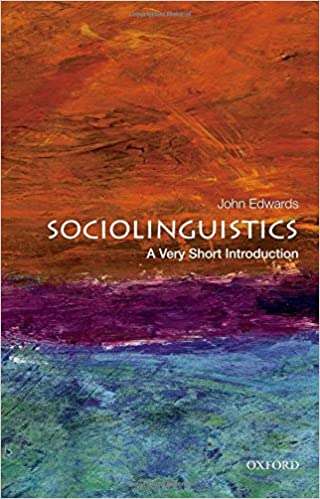

Most ebook files are in PDF format, so you can easily read them using various software such as Foxit Reader or directly on the Google Chrome browser.
Some ebook files are released by publishers in other formats such as .awz, .mobi, .epub, .fb2, etc. You may need to install specific software to read these formats on mobile/PC, such as Calibre.
Please read the tutorial at this link: https://ebookbell.com/faq
We offer FREE conversion to the popular formats you request; however, this may take some time. Therefore, right after payment, please email us, and we will try to provide the service as quickly as possible.
For some exceptional file formats or broken links (if any), please refrain from opening any disputes. Instead, email us first, and we will try to assist within a maximum of 6 hours.
EbookBell Team

4.1
30 reviewsSociolinguistics deals with the social life of language, language in its sociocultural context. It is a branch of linguistics that looks less at the shape or sound of words--morphology or phonology--and more at how our words and sentences are influenced by the society around us--for instance, how the accent or the dialect we use has been shaped by where we come from or which social class we belong to.
In this Very Short Introduction, John Edwards offers the most up-to-date brief overview available of sociolinguistics, with side trips into the sociology of language and psycholinguistics. He considers such topics as the different social evaluations of languages and dialects, the loaded significance of names, and the importance of politically-driven language planning and policy. The relationship between language and gender, sexist language, the language of poverty, and the intertwining of language and religion are also dealt with here. Edwards stresses that, while linguists see all dialects as equally valid, in the wider world powerful attitudes have always placed language varieties in social hierarchies. The author also looks at language more broadly, examining the ways in which languages rise or fall, the attempts to revive flagging or endangered varieties, the reasons why some languages came to dominate others, and the special dynamics that affect contact between "big" and "small" languages.
In both its role as our most powerful tool of communication and as the most immediate symbolic marker of human affiliation, language is pre-eminently a social phenomenon. This compact volume offers an invaluable introduction to this vital aspect of language.